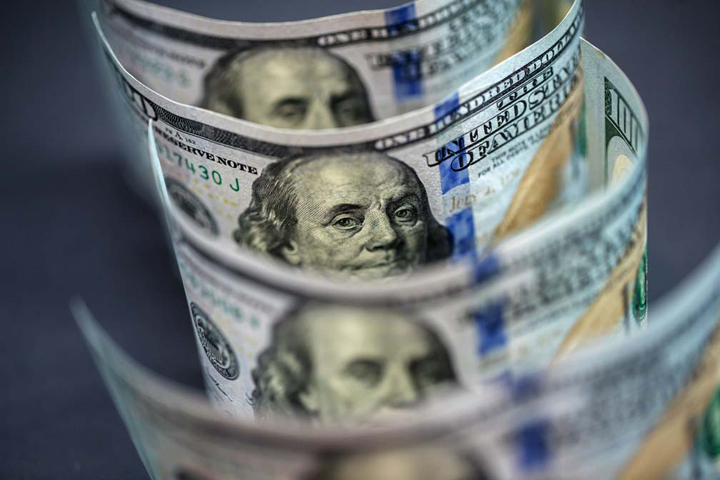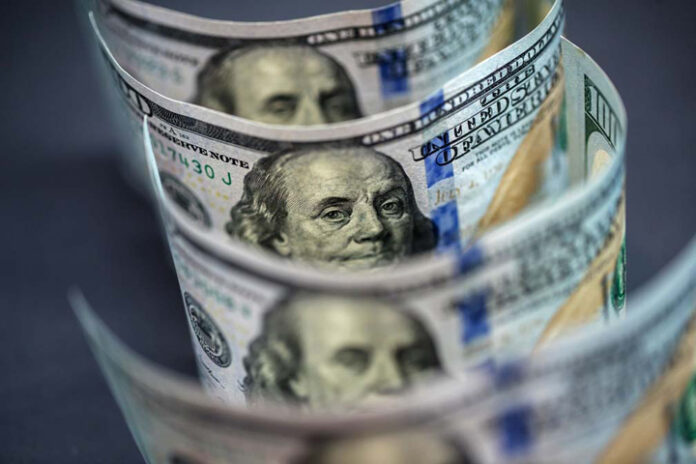
SAVING in dollars will not lead to higher yields in countries like the Philippines, according to Washington-based think tank Peterson Institute for International Economics (PIIE).
According to PIIE Research Fellow Madi Sarsenbayev, domestic currency investors in countries that employ inflation targeting enjoyed higher returns than those who saved in greenbacks.
According to Sarsenbayev, it was easy for investors to shift their savings to US dollar denominations to avoid the volatility of exchange rates. But this will not always lead to higher yields, especially in countries that employ inflation targeting.
“It is, therefore, safe to conclude that floating exchange rates under an inflation targeting regime have not made investors in national currencies worse off compared to those who chose to save solely in US dollars,” Sarsenbayev said.
Inflation targeting, Sarsenbayev said, is when “central banks use interest rates to stabilize inflation around a publicly announced goal—an inflation target.”
The Philippines, to note, is one of 41 countries that adopted a technique called inflation targeting to control the general rise in the level of prices.
If inflation is too high, Sarsenbayev said central banks would tighten monetary conditions by raising interest rates; but if it is too low, central banks would lower interest rates.
“Previously, many of these countries targeted a fixed exchange rate. Although a fixed exchange rate provides some restraint on inflation, it limits a central bank’s capacity to react to economic shocks that affect employment and inflation. Plus, fixed exchange rates are often subject to speculative attacks,” he explained.
Based on data, Sarsenbayev said the Philippines adopted inflation targeting in 2002 and experienced an average inflation rate of 3.98 percent. The average compounded local interest rate is pegged at 3.92 percent.
Sarsenbayev said the average local interest rate was based on domestic short-term Treasury bills starting from the first year immediately following adoption of the inflation targeting framework until the end of 2020.
This is then converted into US dollars. In the Philippines, this conversion leads to a local interest rate of 3.92 percent.
The difference between this US dollar local interest rate and the US interest rate will determine the gain or loss of investors.
The US interest rate is the average rate of return earned on US Treasury bills for the same period and is pegged at 1.23 percent for the Philippines.
When the difference between the US dollar local interest rate and the US interest rate is obtained, the result is a gain of 2.69 percent on average for the Philippines. This indicated that local currency investors earned more than those who invested in the US dollar.
“Savers in local currencies did better not only in terms of US dollars but also in terms of their overall purchasing power at home, as witnessed by average annual domestic currency interest rates that have been higher than average annual consumer price inflation. The only exceptions are Japan and the Philippines, where annual inflation slightly surpassed returns made on government securities,” Sarsenbayev said.
For other countries that use inflation targeting—Brazil, Iceland, Russia, Uganda and Ukraine—local investors were rewarded with over 5-percent higher yields than US dollar savers.
Investors in Armenia, Kazakhstan, Moldova and Uruguay saw their fortunes rise more than 4-percent faster than similar investments in US dollars.
Sarsenbayev said that Canada, Chile, the Dominican Republic, Georgia, Mexico, Sweden and the United Kingdom witnessed average domestic interest rates that were less than 1-percent higher than US dollar rates.
“Investors in all other inflation-targeting economies realized a higher return, despite fluctuations in the value of their national currencies vis-à-vis the US dollar,” he added.

